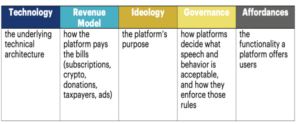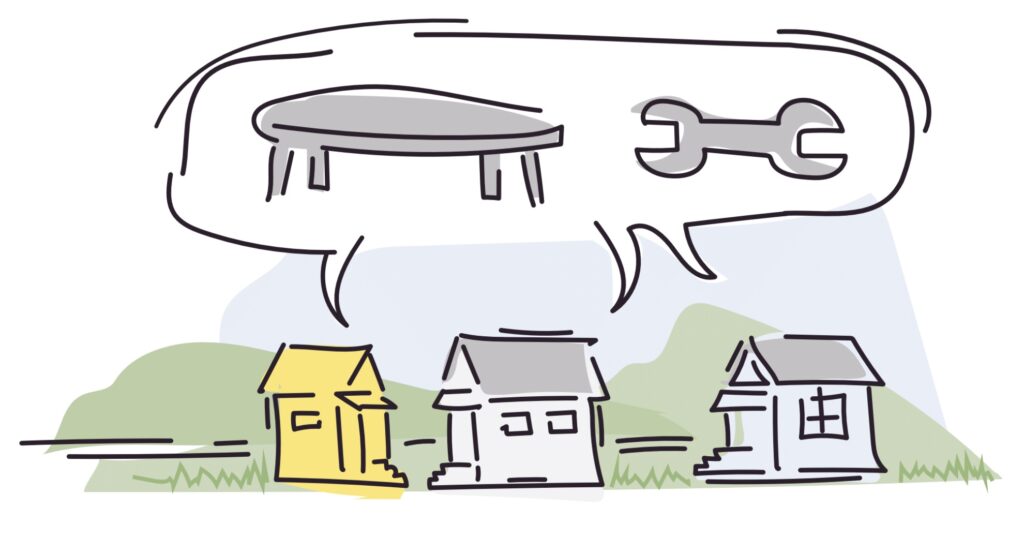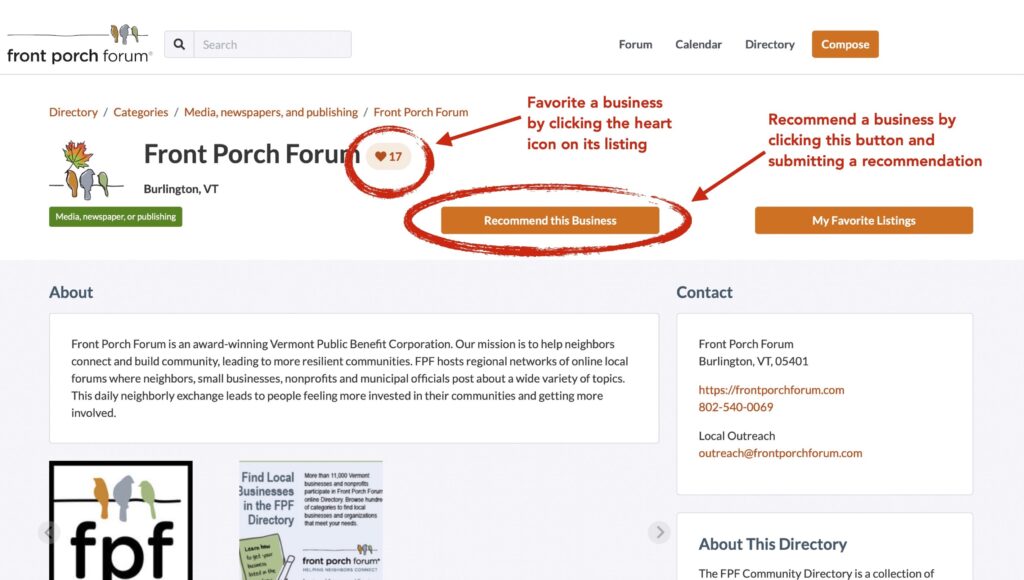Category Archives: Local Online
Use FPF to Recommend Local Businesses
Front Porch Forum takes our members’ privacy seriously. When members post to their Forum, they know that what they write will be visible only to the members of their own FPF and of immediate neighboring Forums. This allows members to engage freely in conversation about local issues, which is central to FPF’s community-building mission.
There are a few situations, though, where it might make sense for members’ postings to be more broadly visible. One of these is when a member recommends a local business or nonprofit on their Forum. Recommendations on FPF are an important resource for our members, and making them more broadly available helps support the nearly 12,000 local businesses and nonprofits that are members of FPF.
With this in mind, FPF recently launched a new feature: Recommendation postings for businesses or nonprofits now show up on the business or nonprofit’s listing in FPF’s Community Directory! Those postings are visible to any FPF member who views that listing, even if they aren’t a member of the Forum where the recommendation originated.
So if you are a business owner or nonprofit leader, ask your customers and supporters to post a recommendation for you on their Forum. (While you’re at it, ask them to “favorite” your listing as well!) When it shows up on your Directory listing, FPF’s 220,000 members all over Vermont will be able to see how much FPF members value what you do!
Solving Social Media’s ‘Local Paradox’
A new article in a Stanford University journal underscores various failures of Big Tech social media, and highlights Vermont’s own Front Porch Forum as a better way.
In the bowels of social media giants, like NextDoor and Facebook, live online spaces for local social networks to take hold (e.g., a neighborhood based Facebook group).
One might think a healthy form of social connection would come from these local online networks because they’re grounded in real-world relationships and physical space — you could literally bump into that posting’s author on your way to school drop off — but in practice, as this article points out, local social media can be even more toxic than global platforms. It’s dubbed the ‘local paradox‘.
The solution to this local paradox, they say, is to build networks that are values-driven, closely moderated, trusted, and local. Further, they share Front Porch Forum as a leading example.
Consider This Around Vermont Elections…
More neighbors are talking about voting, ballot issues, and local concerns in the weeks leading up to Town Meeting Day. New candidates and incumbents are sharing their platforms too. While some members say it can feel like a lot of content (often heated!), consider what this member in Springfield, VT, shared recently on her Front Porch Forum…
“While I’ve posted numerous times over the last couple of years looking for referrals for home improvement projects—and gotten great tips—how cool is it that FPF has become a place to learn about community issues and the people putting themselves out there to make a difference!“
“I don’t have time to call five different candidates to ask how they feel about one issue or another in Springfield schools. In a town without a newspaper, I appreciate the back and forth on FPF and opportunity to learn from the candidates themselves and from community members who support one person or another.” • Kelly in Springfield
See more examples of Vermonters appreciating FPF during election season.
Learn more about FPF Paid Campaign Postings here.
“Local Logic: It’s Not Always a Beautiful Day in the Neighborhood”
 Technology and the way people use it has the power to unite people or pull them apart. Ethan Zuckerman and Chand Rajendra-Nicolucci of Knight First Amendment Institute at Columbia University took a closer look at platforms that bring communities together on a local level, only to find that some designs work better than others.
Technology and the way people use it has the power to unite people or pull them apart. Ethan Zuckerman and Chand Rajendra-Nicolucci of Knight First Amendment Institute at Columbia University took a closer look at platforms that bring communities together on a local level, only to find that some designs work better than others.
Platforms that operate more like social media, where individuals can post whatever they want instantaneously, can lead to heated, attacking commentary, false accusations, or misinformation. This kind of content may cause civil discourse to devolve and it may disrupt the establishment of ties within a community.
On the other hand, Front Porch Forum is an example of a local platform that has systems in place to help keep conversations civil and community-minded, fulfilling its mission of helping neighbors build community. From Rajendra-Nicolucci and Zuckerman’s piece:
“That organic growth was key to maintaining one of the key differences between FPF and Nextdoor: proactive moderation. FPF uses a team of moderators that review each post to make sure it adheres to the site’s code of conduct (which bars personal attacks and behavior “counter to its community-building mission”) before it’s posted. That helps to keep the discussion friendly and constructive… We believe a platform that takes governance seriously, is designed for a specific purpose, and has ties to the communities it serves can be successful anywhere.”
The authors also share the criteria by which they evaluate various platforms. These platforms operate on a local level broken into neighborhoods, towns, or city blocks.

“Getting local social media right is important. Local platforms present an opportunity to strengthen social capital and civic life. At their best, they can keep residents informed about local issues, encourage civic organizing and action, and facilitate new connections and greater understanding.”
Read the full article on Knight First Amendment Institute at Columbia University’s blog here.
About Blog
Ghost of Midnight is an online journal about fostering community within neighborhoods, with a special focus on Front Porch Forum (FPF). My wife, Valerie, and I founded FPF in 2006... read more
Post Categories
- Uncategorized
- PDF2009
- Calendar
- Northeast Kingdom
- podcast
- Peer Rental
- Localization
- Big Tech
- Events
- PDF2007
- Web Traffic
- Google AdSense
- Pay It Forward
- Elections
- berkmansunlight
- Maps
- Video
- Upstate New York
- Coupons
- Wildlife
- Mobile
- Viral Marketing
- Raffle
- Crisis Response
- Donations
- Lost & Found
- Real Estate
- College Students
- Gratitude
- Social Responsibility
- Orton Family Foundation
- Start ups
- Make It Your Own Awards
- Online Civility
- Clay Shirky
- Newspapers
- Humor
- How To Use FPF
- Online Classified Ads
- Peer Reviews
- Best of FPF
- Politics
- Community Management
- Economic Development
- Local Reviews
- Case Foundation
- Borrow and Lend
- Neighborhood Watch
- Good Government
- Small Business Advertising
- Citizen Journalism
- e-Vermont
- Democracy
- Local Search
- Knight Foundation
- Burlington
- MacArthur Fellows
- Civic Engagement
- Social Media
- social capital
- Social Networking
- Vermont
- Neighborhood
- Community Building
- Local Online
- Front Porch Forum






